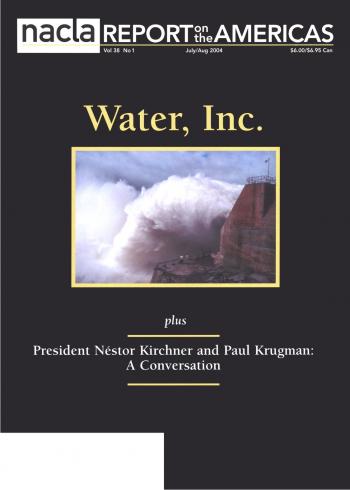Report
María Rosa García-Acevedo and Helen Ingram
The history of U.S.-Mexico relations concerning water is one of barely contained, and sometimes open, diplomatic conflict. Within the United States, interstate water disputes over the Colorado River and the Rio Grande—known in Mexico as the Río Bravo—are complex and contentious. The tensions are only aggravated when these rivers and their tributaries cross the Mexican border.
With its water levels dropping precipitously, the Colorado River Delta faces a bleak future. The survival of the Delta—and of the plants, animals and communities that live there—will depend on the ability of a nascent network of residents, water users, scientists, environmentalists, and U.S. and Mexican government officials to hammer out agreements despite their conflicting interests.
When it loaned $145 million to Bogotá in 1996 to help salvage the Colombian capital’s struggling public water company, the World Bank hoped the city would eventually succumb to its demands to privatize the utility company. But Bogotá hasn’t budged.
Mexico City’s water crisis has myriad faces. Many poor communities not only lack regular service, they lack access to any supply of water suitable for human consumption. Exacerbating the problem are the environmental effects of water policies that have put the whole metropolitan area at risk.
Margaret E. Keck and Rebecca Abers
In Brazil, a reform of the country’s water management system is underway. This process did not result from either a mass movement or from lobbying by powerful interest groups. Instead, it emerged from the ideas and efforts of a handful of dedicated individuals and groups—technical personnel in state agencies, environmental NGOs, and scientists and engineers.
Maude Barlow & Tony Clarke
Latin America is blessed with an abundance of fresh water. The region contains four of the world’s 25 largest rivers—the Amazon, Paraná, Orinoco and Magdalena—and their combined run-off of 5,470 cubic miles almost equals the combined run-off of the other 21. Some of the world’s large lakes are also located in Latin America, including Maracaibo in Venezuela, Titicaca in Peru and Bolivia, Poopo in Bolivia, and Buenos Aires, shared by Chile and Argentina.
During the 1990s, as part of the country’s profound neoliberal economic and social transformation, Argentina experimented with a broad process of privatizing state companies. Driving this process was the idea, born from the previous decade, that the Argentine state is by definition a terrible administrator and should relinquish to the market all of its economic holdings.

